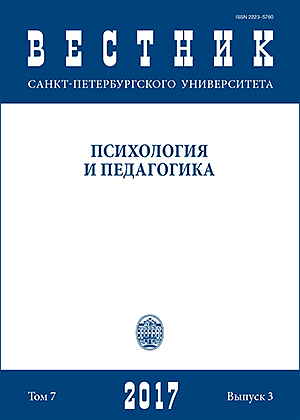Social networks as a new environment for interdisciplinary studies of human behavior
DOI:
https://doi.org/10.21638/11701/spbu16.2017.301Abstract
The paper describes a new approach to collecting individual psychological, behavioral and language data from online social networks. Within this approach, personal data (“digital footprints”) are collected by means of special programs and web-applications that are embedded in social networks interfaces or otherwise connected with them. Usually, users provide additional information by answering questions of online surveys embedded in such applications. Psychological variables can be then associated with online behavioral data and other available information. The data of thousands of users can be not only analyzed with traditional statistical methods, but can also be used to build predictive models with machine learning algorithms. Thus, psychological characteristics (personality traits, wellbeing, etc.) and demographical data can be predicted based on public user information — wall posts, page likes, etc., which is a completely new approach to data collection. Such research projects usually involve multidisciplinary teams of psychologists, web developers, computational linguists and data scientists. Advantages and limitations of this methodology are discussed, as well as the methods of data collection and processing and predictive models building. Key findings of the pioneers of this research direction are presented. These are the findings of the British project “Mypersonality.org” and the USA-based project “World Well-Being Project”. Both are employing the described methodology quite massively.
Keywords:
social networks, Facebook, data collection, digital footprints, psychological traits, predictive models, computer linguistics, interdisciplinary approach
Downloads
References
References
Downloads
Published
How to Cite
Issue
Section
License
Articles of "Vestnik of Saint Petersburg University. Psychology" are open access distributed under the terms of the License Agreement with Saint Petersburg State University, which permits to the authors unrestricted distribution and self-archiving free of charge.




